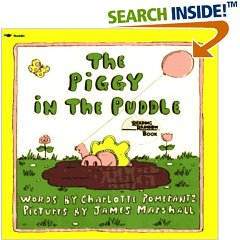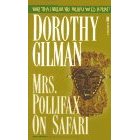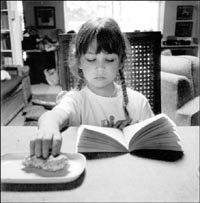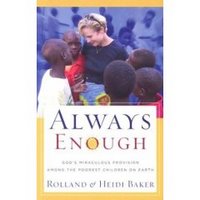
Why did I read this book and why am I writing about it? After all, I'm not single (anymore). But I was once. And I remember it. And I will honestly say that I'm extremely grateful that I'm not single any longer. But that didn't mean that it was a bad state to be in or that I didn't have fun during that time period. Because I did.
I generally try to be careful about what books I recommend to whom. A simple book recommendation can prove offensive if the "right" conditions are in play. This is one of those dangerous books, mostly because it has a dangerous title. Single women might not want to be caught reading it, or having people know that they have read it. Or sympathize with it. Does that make their avoidance correct? No, I don't think so. Nor is the avoidance of a married woman necessarily valid. Think about it. Most single women spend time reading romance novels (Christian or otherwise) and child rearing books for that "one day" in the future when they might happen to need the advice of any relationship author. So why shouldn't a married woman read a book about being single? It never hurts to refresh one's memory of time's past. It also might help you to understand and/or better relate to a single gal-pal. Maybe not, but this book in particular might help you realize a few things about the culture in relations to singles that perhaps you hadn't realized before.
I realize that the majority of this blog's readership is Christian and perhaps conservatively so. Many singles reading might hold to the courtship standard when it comes to building relationships with the opposite sex. Some have foregone that mindset quite some time ago. Some might have been on match.com (or some other service) while others could care less about marriage right now and are quite content in their single state. Others are dating. Others are married. Everyone is always in a different stage of life. Few of us land on the exact same path at the exact same time. That shouldn't preclude us from attempting to relate and support each other in our different times and seasons. While Gilliam certainly intends this book to be "by a single, for a single" I think her audience should be broader in its general scope. I didn't have any problems reading it (I think it was healthy for me to do so), nor do I have any problems recommending it (obviously).
Frankly, I wasn't sure what to expect when I first started the book. After all - I am married. I'm not sorting through The Trials of The Single Woman anymore. I thought the book would be boring, irritating, or both. Wrong on both counts! Despite the fact that she references and quotes politicians that I loathe, and watches movies I wouldn't go near and happens to like music that I find particularly repulsive, she still had valid points to share. (Aren't I gracious?) So, I can really only review this book in light of past experience and my friends' current experiences. I can only listen to what some single friends have told me and try to make applications where appropriate. And I've decided to be brutally honest in some parts of this review.
Things I particularly appreciated about this book:
1. She's honest. She says she's lonely. She said single life sucks. She feels a void. She wants a home. She admitted that she wishes the title and the content about the book were focused on marital advice and family relationships instead of a book about Aloneness. She still wants to get married (age 37 and waiting). Writing this book didn't cure her of the loneliness or ache she feels in a coupled-up world.
2. She talks about building companionship with both women AND men. She recognizes that women do indeed need men in some form or fashion and life without a man is somewhat different and/or difficult. Her arguments counter attack the feminist movement's "empowering" message of life without males. She also supports having (carefully guarded) friendships with men. So many books on Christian dating/courtship would have the two sexes miles apart at all times -- a ridiculous arrangements, in my opinion -- instead of encouraging healthy friendships. I appreciate Gilliam taking the time to support friendships with the opposite sex instead of making single women feel like even grown men have the cooties.
3. She talks about being a single woman with lots of married friends and the appropriate way to interact with those married women and their husbands. I particularly appreciated this because a. I'm married and b. I have lots of single friends. Some of my single friends switched the way they related to myself and Jonathan automatically and have left me feeling completely comfortable with their friendship towards the both of us. Others have made me feel as if they need to be kept at arm's length as they seem to have no apparent idea of what it means to respect the marriage relationship and, quite frankly, seem to trounce all over us with no regard to how it makes me feel, in particular. Again, I appreciated Gilliam's frankness in discussing both the pain and parting aspects of learning how to relate to friends as a married couple. Yes, it does separate people. Yes, it does require a different level of behavior. But it's healthy and important. For everyone.
What I know and remember about the single life which I could identify and relate to Gilliam's remarks:
1. I was lonely once too. There was something missing and I knew I didn't have it within myself to be whole in this area. I wanted to share my life with someone. I wanted to fall asleep with someone (I never prayed about snoring issues though.) and I wanted to wake up with them. I wanted them to know all about me. (Well, mostly.) And I wanted them to love me for my every fault. (Yes, I expected perfection and a conscious looking past my faults.) I always thought life would be MORE fun with someone to share it with.
2. I wanted to be rescued. I'm not sure I would have consciously related it to "being rescued from singleness" though. I remember telling a close friend every time a particularly bad law school exam was approaching that "I Just Want to Get Married!" If my own Prince Charming would have entered into the picture right before a big exam, a big move, a scary situation then I would have been rescued from whatever particular predicament that I was currently facing. That sounded relieving! In between Big Scary Life Situations though I remember having fun. Still being lonely, yes, and being interested in romance, but generally content with seeing/spending time with friends. Besides, most of my close friends were single too. It's not like I had to bemoan the fact that they were off being married while I wasn't. I wasn't really hurting in that regards.
3. I remember being 16 and telling a friend of mine that I would likely be dating by 18 and married by 20ish. Very close to 20 at any rate. Why? I don't know. Because everyone I knew (at the time) was doing that. So that was What Was Done. What I didn't know at the age of 16 was that I had 10 more years of waiting ahead of me. I realize that everyone is made differently and some feel an inner urge to be married much sooner than others. Some 17 year olds are pining away for The Ultimate Relationship. What I don't think they realize is that there is no Ultimate Relationship to be had at that age. They don't even know who THEY are, let alone have the capabilities of figuring out anyone else. Others begin the pining at 22 or 23. I don't believe I finally gave up on the idea of marriage, really, until 23 or 24. A friend said once to me that "marriage was a book on the shelf" and it wasn't time to pull it out and read yet. I identified with that. It was a distant thought that I knew was a distinct possibility (hoped so at any rate) but that I couldn't base my life decisions on the idea of being married the next day. For a few years there I was definitely single and I was definitely ok with that.I remember making a significant move and having people tell me, "Ooo...maybe you'll meet your husband in X." I told them that wasn't very likely, and I also told my new friends and acquaintances upon arrival that it wasn't very likely. Turns out, I was right. Marriage was still 3 years away from my first big Move Away From Home. (And I'm right glad of it, too, btw!)
But then again - my memory is shaky because singleness is in the past. Now is the future. Here I am, in my late 20's, "newly" married (comparatively speaking) and with our first kid on the way. Several friends of mine (who are younger than me) have been married for 5-6 years and have kids of that age. Some have multiple children. In some respects, I suppose I could be viewed as a late bloomer. For myself, I think I was right on time. (As I joke, I had to wait for my husband, who is younger than me, to grow up and be of marriageable age!) God's timing IS perfect. I could no more rush it as delay it. God put Jonathan and I on the same path, at the same time. It wasn't arranged by us (believe us!) but by Him. Timing was everything.
Gilliam shares a piece of advice that a friend shared with her: "It is better to be single and want to be married, than to be married and want to be single." We all nod our heads. Makes sense in the practical, right? But I'd say that's a deep truth and not one to skim over. I also have old-time friends who are not particularly happy in their marriages. The rate of divorces among Christians are creeping up to be as high as they are in non-Christian marriages. This isn't a little saying which should be quickly overlooked, but carefully considered. I'm very blessed in that by waiting a few years more than I had planned, I ended up in a marriage that leaves me grateful for the companionship - every day - and makes me look forward to our future together, as opposed to wishing for opportunities that the single life held in the past. I have no regrets and there is no second guessing. I'm secure and content. (And did I mention grateful?) If there's a truth that Gilliam shares, and that I'd love for others to realize is that it is better to wait - even if feels like the male in front of you is a great opportunity or if it feels like he may be your last chance. When the question rises in your mind, "Is this my only chance, Lord?" then your immediate response to the guy should be, "Sorry -- ain't gonna work!" There's no need to explore beyond what you know God has in store for you for the sake of a fear.
And what, exactly, does God have in store for any single? How am I to know and who am I to say? I know what He had for me, long before I ever met Jonathan. I knew I was going to marry someone whose first kiss would also be my first kiss, who would know the answers to most of my questions, who would read books and be musically talented. (I didn't bargain on marrying someone who would make me give up drinking Dr. Pepper, but that's ok. I needed to anyway!) I knew I needed to marry someone with a stronger personality than myself, who wouldn't let me push him around. And I knew (before Jonathan entered the picture) that I hadn't met anyone like that yet. Therefore I was ready to wait. I had seen too many friends compromise and I honestly didn't want that said of me. I'm glad I don't have to say that of myself. If I had, I would be spending my time, right now, fighting against the wish to be single again. That would be a miserable life.
I used to have a Sunday School teacher who would tell us, "You'll never be content married, unless you are content single." At the time I both thought that was wise as well as having the thought, "If that's true, then I will never be content." Thankfully, Gilliam dispels this myth in her book. She admits to be lonely and wanting to find "home." She argues that is a good thing. We're always to be looking forward with our eyes upon the ultimate prize which we shall receive for having run the race well. For some people, they will be married. For others, they will be single. She hopes she won't be and I hope that for single Christian women as well. It is a lonely road and as a friend told Gilliam, "[She has] suffered much by being single." She does suffer a loneliness that is certainly not enviable, however at the same time it is not to be disdained.
The main thrust of her book (although, quite frankly, a little hard to discern at times) is that we should be looking for God in all the "single" places. In every area of loneliness, in every party you go to alone, for every lawn you have mow as a single female because there isn't a male to do it for you. But what a lesson for all of us, eh? We should be looking for God in all of "our places" whether single or married. That's a life calling for all of us.
We've all heard the commentary on how we are to be content single, how we shouldn't pursue certain careers as they somehow make us "less marriageable", or how maybe we should (as females) remain under our parents roofs and under our father's protection until our husband steps in to take responsibility for us. To all of that I say -- HOGWASH! We're all called to different timelines. Period. End of story. There's nothing to debate about that. It's a simple fact. My having left home to pursue a career in law shouldn't have (and ultimately didn't) have an effect on "my marriageability." (Although it worried some.) God has given us gifts and talents to USE. It's all for His glory and not for ours. Gilliam says a vocation is a calling out. A calling out BY a Caller. Why would we ignore the call? Because we think we know better? Because the Caller called when we weren't ready to go? Because we were waiting on the sidelines for what we thought was The Thing To Do? When the Caller comes a callin', its time to go, baby! Wherever. Whenever. Whatever. Obedience is the key. For anyone who would suggest that a single girl hold back from her calling to see if maybe "her man" will enter into the picture I say -- BACK OFF! Let her go where she knows she's being led. Keep your mouth shut unless you have some words of encouragement for her as she runs her race alone. It's a lonely enough race as it is. To try to hold her back is to increase the misery, so to speak. Let her run. Watch her go! Cheer her on! I think this book reminded me, as a married woman, to cheer on my single friends. I know I can't be everything to them. But I can offer a simple cheery word when needed. And this book, perhaps, has made me more alert. There are friends of mine that I long to see married -- to share the joy and to know the same journey. It's a blessing that I wish for them. But I cannot give it to them, nor can they nab it for themselves. So we wait. Together. As best as we can with as many encouraging words as we know how to give to each other.
Lastly, Gilliam addresses the issue of what to say when people ask single gals why they aren't married yet. Personally, I think that's a highly offensive question and absolutely none of the business of the person asking. Gilliam gives options of sarcasm or truth, but leans towards an honest remark. (Personally I prefer the sarcastic answer. Surprised?) At any rate, she references the story of the blind man who Jesus healed. After the healing, the people around asked why the man was blind to begin with. Was it some sin of his? Some sin of his parents? Jesus said no to both. Jesus DID say that the man was made blind so that the work of God could be accomplished in his life.
I have random pieces of paper sticking out all over this book. (It's a library copy.) So many pages and paragraphs that struck me as shareable. But perhaps the most important is this: That everyone, no matter whether they are single are married, are in the state that they are in so that the work of God can be accomplished in their lives. 'Nough said.













